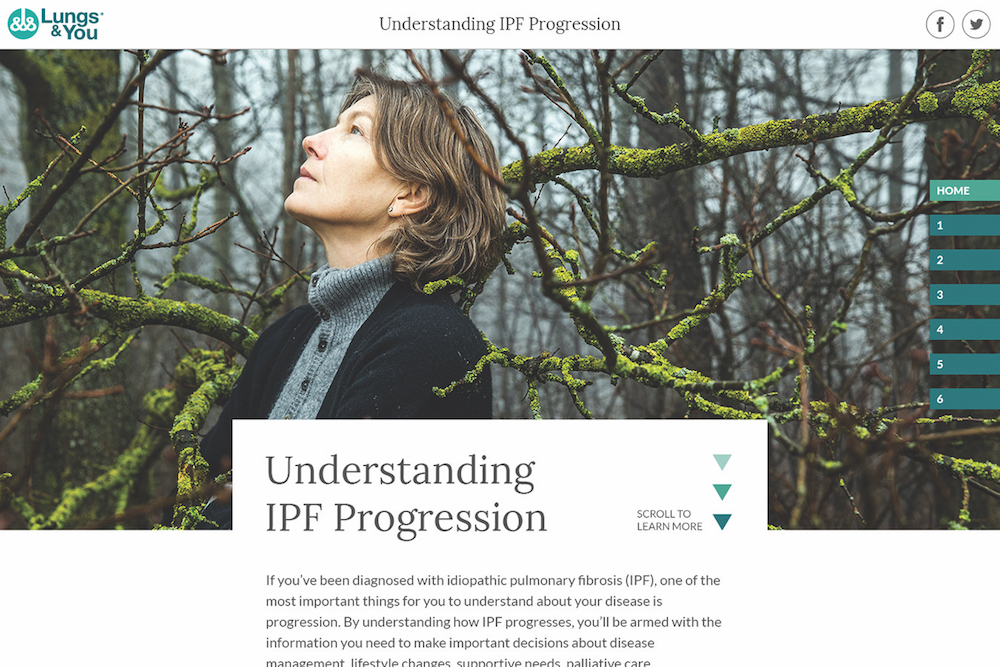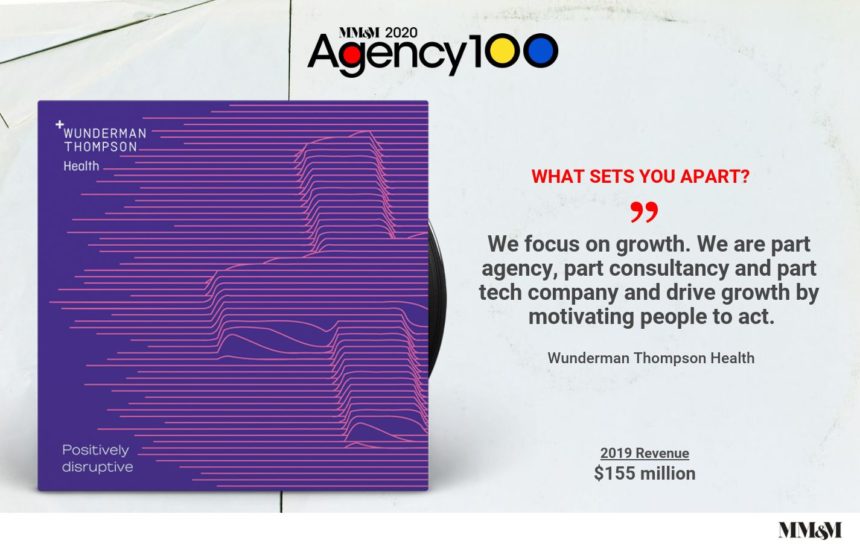“You’re going to be very happy with what I’m about to show you,” a Wunderman Thompson Health researcher told CEO Becky Chidester one late October morning as he walked into her office. The bombshell disclosure came from the newest iteration of its annual Health Inertia research and provided long-awaited evidence of what the agency had suspected all along.
“Personalized and motivational messages are more effective at getting providers to make better health decisions,” Chidester says. “We can now say with certainty that what we’ve known to be true with consumers is equally true with doctors and nurses.”
Anyone who thinks that this “doctors are people, too!” insight sounds obvious doesn’t understand what makes Wunderman Thompson Health tick. It has always been an agency that wants to do more than educate its various audiences. Rather, it wants to motivate them to do something different.
“Everyone is more than just a diabetic or an oncologist. They’re a person,” Chidester continues. “And research like this tells us how they behave, how they’re influenced, what their personal motivations are and how we can use that insight to create content that moves them. That’s healthcare’s biggest challenge, and it makes for great work.”
The insight feels especially affirming to Chidester, given that it arrived at the end of its first full year as a merged entity (Wunderman Health was joined with WPP siblings ghg and J. Walter Thompson Health to form Wunderman Thompson Health in late 2018). “It’s so gratifying and confirming to know that we are really onto something,” she adds.

MM&M estimates that revenue declined slightly in 2019, to $155 million from an estimated $160 million in 2018. Describing 2019 as a “year of transformation,” Chidester says the merger has brought about an awareness of the company’s “ability to deliver against a broader set of needs,” fueled by its digital prowess and expanded medical expertise. “We’re looking to better understand different ways to engage with healthcare professionals,” she adds.
That means a sharper focus not just on messages, but on the tech and media used to deliver them. “You need to have the technology capabilities to get the right experience and the right message for the right person. Several years ago, doing that was incredibly complicated and expensive. Now it’s feasible, and it’s another way we can differentiate ourselves from our competitors,” Chidester continues.
Longtime FCB Health exec Dania Alarcon, who joined WTH as chief medical officer in January 2020, says the drive to motivate change is the reason she accepted the position. “We are finding better ways to inspire doctors to take action and prescribe products for appropriate patients once they reach the market,” she explains, adding that she has been charged with integrating a core of medical strategists into existing brand teams. “We want to find meaningful ways to create the kinds of talking points providers are looking for.”
WTH’s overall head count fell sharply, from 680 at the end of 2018 to 615 at the end of 2019, which Chidester attributes to back-office efficiencies and talent synergies achieved after WPP blended Wunderman with J. Walter Thompson. It nonetheless made a number of key hires across its seven North American offices (Chicago, Los Angeles, New York, Washington, DC, St. Louis, Kansas City and Stamford, Connecticut). Notable additions included chief experience officer, Wunderman Thompson New York Sherine Kazim, who arrived from Huge.
The agency devoted considerable energy and resources in 2019 to beefing up its technological infrastructure, including the addition of more dynamic content capabilities. “If there are technology platforms such as Marketo or Salesforce that can do the work of humans, we let them,” says chief data and analytics officer Mike Duke. “We’ve been very aggressive in making sure humans are doing the things humans can do, and automating what we can.”

WTH also continued with its series of data hackathons, which brought together 12 different client organizations. “Over the span of two days, we brought so many different business problems into the room, and then we let our people be themselves, do what they do and collaborate,” says chief growth officer William Martino.
The marathon sessions validate what he feels is WTH’s core premise at this point in its evolution: “We bring together enablers of creativity, data science and technology. It’s who we are right now. It’s about scaling that up.”
In the remaining months of 2020, WTH’s leadership hopes to focus on further diversifying its account roster. Client mainstays include GlaxoSmithKline (for Sensodyne), Pfizer (for its pediatric vaccines), Boehringer Ingelheim and Kaiser Permanente Medicare.
Chidester also anticipates stepping more fully into the wellness realm. “The focus has been much more on chronic care patients, rather than actually keeping people healthy,” she explains. “But we see so many exciting growth opportunities, including nutrition and wellness programs.”
To that end, Martino notes that WTH’s payer clients are already investing more in personalized wellness programs. “We have to understand how people behave and drive positive behavior changes across that landscape, be it patient, payer or provider,” he explains. “There’s a collective network of relationships and it’s becoming increasingly important to understand them and get it right.” Nontraditional health companies, he adds, “have a vast landscape of stakeholders that they need to better understand.”
We bring together enablers of creativity, data science and technology. It’s who we are right now. It’s about scaling that up.
William Martino
Not surprisingly, the WTH leadership team predicts massive shifts ahead spawned by the COVID-19 crisis. “People recognize the need for having a source for credible information, especially in a time where misinformation can be so damaging,” says Alarcon. “Clients are looking to us to help them to come up with innovative ways to ensure that their brand is presented with the latest, greatest information.”
Duke, for his part, anticipates “even more digital acceleration, which will force clients to make greater use of digital and data to inform and drive those engagements, and to create experiences that are as meaningful as possible.”
With the presidential election just around the corner, Chidester predicts that America’s appetite for universal healthcare will grow. “Not too long ago, there seemed to be greater momentum around a more conservative approach, including shoring up the Affordable Care Act,” she says. “But it’s possible we’ll see more public support for healthcare that’s available to all people across the country.”
The best marketing we saw in 2019…
Botox’s latest work for migraine sufferers does such a nice job of accurately portraying women. They’re mothers, architects and park rangers. They’re represented well, and they have a voice. — Becky Chidester
From the June 01, 2020 Issue of MM+M - Medical Marketing and Media








